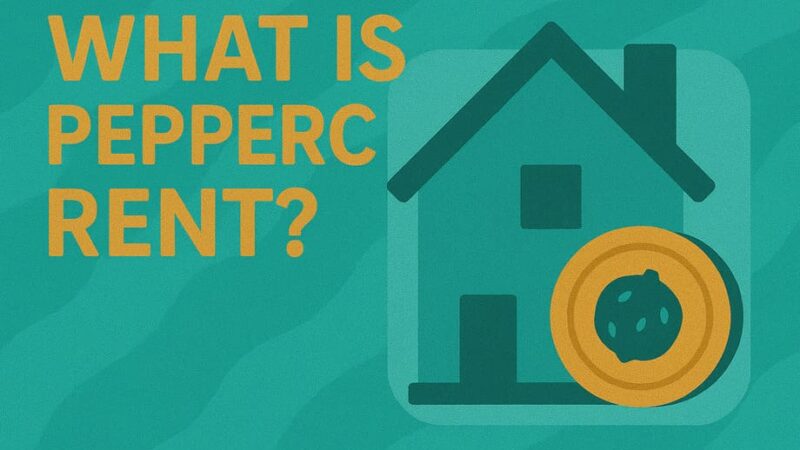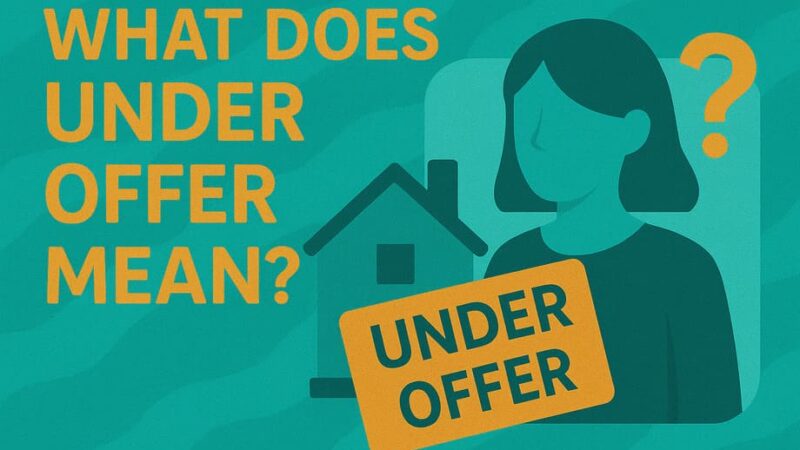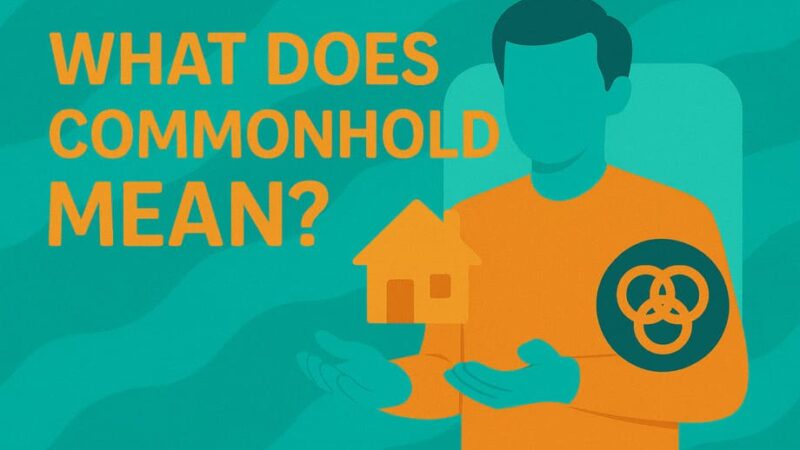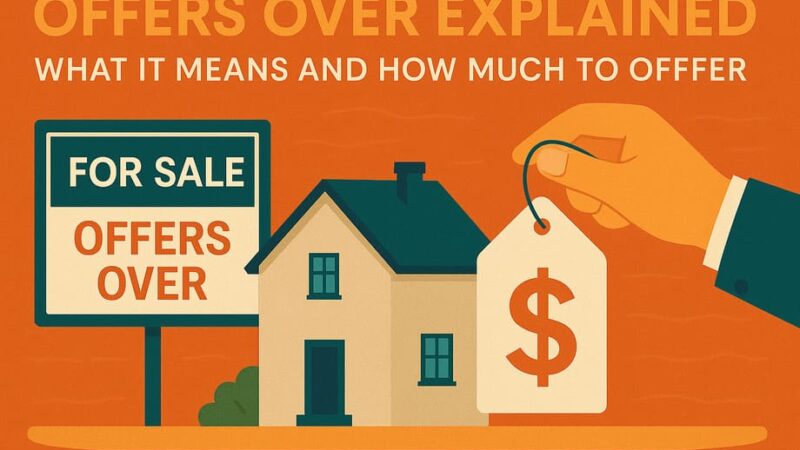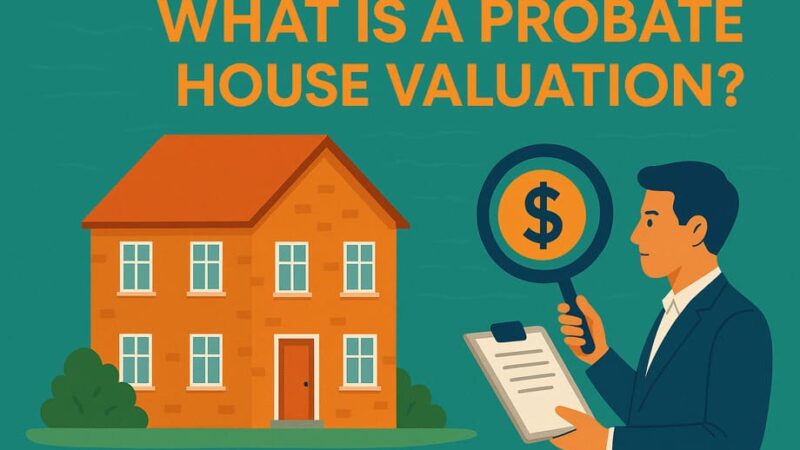What Does Sold STC Mean
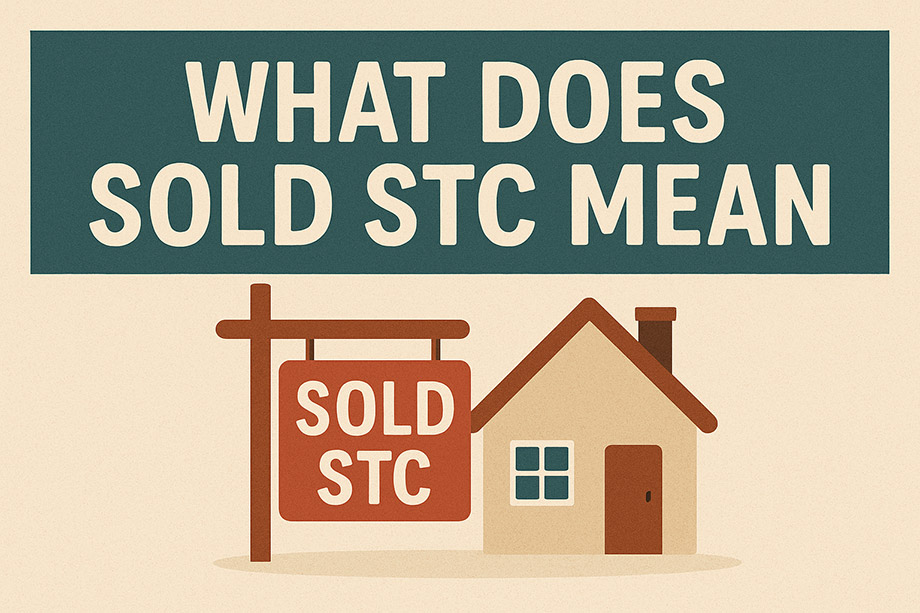
If you’ve been browsing property listings online, you’ve likely encountered the term “Sold STC” or “SSTC” displayed on properties that caught your eye. This seemingly simple abbreviation carries significant meaning in the UK property market and understanding it could be crucial whether you’re buying or selling a home.
What Does Sold STC Actually Mean?
Sold STC stands for “Sold Subject to Contract,” and it represents a specific stage in the property buying process. When a property is marked as Sold STC, it means that an offer has been made on a property and that the seller has accepted it, but the sale isn’t legally binding yet as the contracts haven’t been signed.
Think of it as a verbal handshake deal – both parties have agreed to proceed, but nothing is set in stone until the legal paperwork is completed and contracts are exchanged. This distinction is crucial because it means the sale can still fall through, and in some cases, other buyers can still make offers.
The Property Sales Process: Where STC Fits In
To understand Sold STC properly, it’s helpful to see where it fits in the broader property sales timeline:
| Stage | Description | Legal Status | Duration |
|---|---|---|---|
| Listed | Property advertised for sale | No commitment | Ongoing until offer accepted |
| Under Offer | Offer made and accepted, terms being finalised | Not legally binding | 1-2 weeks |
| Sold STC | Terms agreed, conveyancing process begins | Not legally binding | 8-12 weeks average |
| Exchange of Contracts | Legal contracts signed and exchanged | Legally binding | Same day as completion or up to 2 weeks before |
| Completion | Keys handed over, sale finalised | Legal ownership transferred | Final day of process |
What Happens During the Sold STC Phase?
The Sold STC period is one of the most intensive phases of the property buying process. Here’s what typically occurs:
For Buyers:
- Mortgage application and approval process
- Property survey and valuation
- Conveyancing (legal work) begins
- Property searches conducted
- Building insurance arranged
- Final mortgage offer received
For Sellers:
- Responding to buyer’s queries
- Providing property information
- Coordinating with estate agents
- Preparing for completion
- Arranging removals
Understanding the Risks and Possibilities
| Risk Factor | For Buyers | For Sellers | Mitigation Strategy |
|---|---|---|---|
| Gazumping | Seller accepts higher offer | Opportunity for better price | Quick conveyancing, remove from market |
| Gazundering | Buyer reduces offer last minute | Potential financial loss | Choose committed buyers, good communication |
| Chain Collapse | Purchase falls through | Back to square one | Understand chain positions, have backup plans |
| Survey Issues | May need to renegotiate or withdraw | Potential price reduction | Be transparent about property condition |
| Mortgage Problems | Deal falls through | Wasted time and costs | Ensure buyer has mortgage in principle |
| Legal Complications | Delays and additional costs | Extended uncertainty | Use experienced conveyancers |
Can You Still Make an Offer on a Sold STC Property?
This is one of the most common questions buyers ask, and the answer might surprise you. Yes, buyers can still make other offers on properties marked as ‘Sold STC’ because an offer has been accepted but contracts have yet to be exchanged.
However, the ethics and practicality of this approach are worth considering:
Legally Possible:
- Estate agents must present all offers to sellers
- Sellers can legally accept higher offers (gazumping)
- No binding contract exists until exchange
Practical Considerations:
- Most sellers prefer to proceed with existing buyers
- Gazumping can damage professional relationships
- Starting over causes delays and additional costs
- Success rates for gazumping offers are relatively low
Regional Differences in STC Rules
| Region | Gazumping Legal Status | Additional Protections | Key Differences |
|---|---|---|---|
| England | Legal | None | Standard STC rules apply |
| Wales | Illegal | Home Report system | Cannot gazump after acceptance |
| Scotland | Illegal | Different legal system | Offers become binding when accepted |
| Northern Ireland | Legal | Similar to England | Standard STC rules apply |
Timeline: How Long Does Sold STC Usually Last?
The duration of the Sold STC phase can vary significantly based on several factors:
| Factor | Impact on Timeline | Typical Duration |
|---|---|---|
| Chain-free sale | Faster process | 6-8 weeks |
| Property chain involved | Longer process | 10-16 weeks |
| Cash buyer | Faster process | 4-6 weeks |
| Mortgage required | Standard process | 8-12 weeks |
| Leasehold property | Additional checks needed | 10-14 weeks |
| Listed building | Extra legal work | 12-16 weeks |
| Survey issues found | Potential delays | Additional 2-4 weeks |
Why Do Sold STC Properties Come Back on the Market?
Understanding why sales fall through can help both buyers and sellers prepare better:
| Reason for Fall-through | Frequency | Prevention Tips |
|---|---|---|
| Buyer mortgage issues | 25% of failures | Get mortgage in principle early |
| Chain collapse | 20% of failures | Understand all chain positions |
| Survey reveals problems | 15% of failures | Honest property disclosure |
| Buyer changes mind | 12% of failures | Ensure buyer commitment |
| Gazumping | 10% of failures | Remove property from market |
| Legal complications | 8% of failures | Use experienced conveyancers |
| Gazundering | 5% of failures | Choose committed buyers |
| Other reasons | 5% of failures | Good communication throughout |
Tips for Buyers Dealing with Sold STC Properties
If You’re the Accepted Buyer:
- Act quickly to progress your mortgage application
- Respond promptly to solicitor requests
- Stay in regular contact with your estate agent
- Consider asking the seller to remove the property from the market
- Be prepared for potential delays but don’t let them derail you
If You’re Interested in a Sold STC Property:
- Contact the estate agent to register your interest
- Be prepared to act quickly if the sale falls through
- Consider whether making a higher offer is ethically appropriate
- Have your finances ready for immediate action
- Understand that success rates are generally low
Tips for Sellers with Sold STC Properties
Protecting Your Sale:
- Choose buyers with strong financial positions
- Maintain regular communication with all parties
- Be transparent about any property issues
- Consider the long-term implications of gazumping
- Use experienced professionals to minimize delays
Managing Multiple Offers:
- Evaluate offers based on more than just price
- Consider the buyer’s position and timeline
- Assess the strength of mortgage arrangements
- Factor in the potential for completion delays
- Remember that higher offers don’t always mean better outcomes
The Financial Implications of Sold STC
Understanding the financial aspects of the Sold STC phase is crucial for both parties:
Costs During STC Phase:
- Mortgage arrangement fees
- Survey costs (£300-£1,500)
- Legal fees (£500-£2,000)
- Search fees (£200-£500)
- Buildings insurance
- Removal costs planning
Potential Losses if Sale Falls Through:
- Abortive legal costs
- Survey fees
- Mortgage arrangement fees
- Estate agent marketing costs (for sellers)
- Time and opportunity costs
Red Flags to Watch Out For
| Warning Sign | What It Means | Action to Take |
|---|---|---|
| Seller keeps property advertised | May be seeking better offers | Request removal from market |
| Unusually long STC period | Potential complications | Request regular updates |
| Buyer avoiding communication | Possible commitment issues | Seek direct contact |
| Multiple survey requests | Buyer may be hesitant | Address concerns promptly |
| Delayed mortgage application | Financial issues possible | Set clear deadlines |
| Frequent price renegotiation | Buyer may be unreliable | Consider alternative offers |
The Psychology of Sold STC
The Sold STC phase can be emotionally challenging for all parties involved. Understanding the psychological aspects can help:
For Buyers:
- Excitement mixed with anxiety about potential fall-through
- Pressure to act quickly on surveys and mortgage applications
- Concern about gazumping
- Investment in the outcome creating emotional attachment
For Sellers:
- Relief at having an accepted offer
- Anxiety about the sale progressing
- Temptation when higher offers arrive
- Pressure to keep the sale moving
Technology and Sold STC
Modern technology has changed how the Sold STC phase is managed:
Digital Advantages:
- Online tracking of conveyancing progress
- Digital document sharing and signing
- Electronic property searches
- Video property surveys in some cases
- Automated updates and notifications
Remaining Challenges:
- Digital divide among participants
- Security concerns with online transactions
- Need for physical signatures in some cases
- Varying technology adoption among professionals
Future of Sold STC
The property industry continues to evolve, and several trends may affect the Sold STC process:
Potential Changes:
- Increased use of reservation agreements
- Greater standardization of timelines
- Enhanced digital processes
- Improved chain management systems
- Better consumer protection measures
Industry Initiatives:
- Faster conveyancing processes
- Improved communication systems
- Better qualification of buyers
- Enhanced property information packs
- Standardized chain management
Making the Most of the Sold STC Phase
Whether you’re buying or selling, the Sold STC phase doesn’t have to be a source of stress. Here are some strategies for success:
Communication is Key:
- Maintain regular contact with all parties
- Be proactive in chasing progress
- Address issues promptly when they arise
- Keep realistic expectations about timelines
Professional Support:
- Choose experienced conveyancers
- Work with reputable estate agents
- Use qualified surveyors
- Consider mortgage brokers for complex situations
Documentation:
- Keep records of all communications
- Maintain copies of important documents
- Track progress against agreed timelines
- Be prepared for additional information requests
The Bottom Line
Sold STC represents a crucial transition phase in property transactions – it’s the bridge between agreeing to buy or sell a property and actually completing the transaction. While it can be a period of uncertainty and potential complications, understanding the process, risks, and opportunities can help both buyers and sellers navigate this phase successfully.
The key is to remember that while an offer has been accepted, nothing is guaranteed until contracts are exchanged. This reality should inform your decisions and actions throughout the process. For buyers, it means staying committed but realistic about potential outcomes. For sellers, it means balancing the desire for the best deal with the practical benefits of a smooth, timely completion.
Success in the Sold STC phase often comes down to choosing the right professionals, maintaining clear communication, and having realistic expectations about timelines and potential challenges. With proper preparation and understanding, this phase can be navigated successfully, leading to a positive outcome for all parties involved.
Last Updated on July 23, 2025 by James Cartwright



